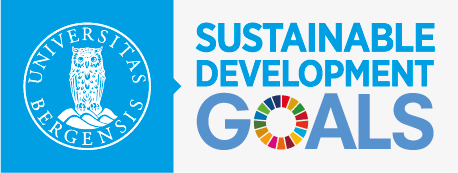WUN funds global challenges research
The University of Bergen is involved in four new projects to receive funding from the Worldwide Universities Network’s Research Development Fund, which focusses on global challenges towards the 2030 Agenda.

Hovedinnhold
We spoke with the four University of Bergen (UiB) researchers who are part of these exciting new projects and their hopes of what these partnerships can bring. Not the least in light of the 2030 Agenda and the slogan “build back better”, which has been used increasingly by both activists, scientists, politicians and other stakeholders in light of the COVID-19 pandemic.
Principal Investigator Tore Sætersdal; Rising Inequalities
Post-pandemic learning
Archaeologist Tore Sætersdal from the University of Bergen (UiB) is the principal investigator in the new project Rising Inequalities (RISIN), which has been awarded funding from the Worldwide Universities Network (WUN).
Sætersdal has long been working within the WUN system, including being chair of the Understanding Cultures group in WUN, one of four globally significant themes within the network.
“The project seeks to understand what efforts in mitigating the COVID-19 worked on different levels. Why did some countries appear to be less severely affected than others? What measures taken by national authorities worked on which levels in the different countries,” asks the archaeologist.
In South Africa, the president and authorities have called for comparative research into the pandemic and the measures taken. Norway has formed a strategic partnership with South Africa on COVID-19 research.
“At the University of Bergen, we have created an interdisciplinary group from social sciences, psychology and the Centre for International Health. Together with our colleagues in Ghana, Uganda and South Africa we will be comparing measures, policies and implementation in our different countries. What worked, what failed? Why were certain measures effective in one community and not in another?”
The new project is a collaboration with WUN partners the University of Ghana and Makerere University in Uganda, one of the University of Bergen’s main partners in Africa. It also includes non-WUN partners such as the University of the Western Cape, which hosts the South African-Nordic Centre (SANORD).
“The goal is to form a research consortium that will be able to offer knowledge-based advice to governments and local authorities in order to help reduce risks for populations and inform the ‘build back better’ strategies of authorities, health organisations and communities. The severe impact of the COVID-19 pandemic was unexpected and seemingly very few countries were prepared for the magnitude. Research is needed to build knowledge that can inform risk reduction efforts in the future,” says Sætersdal of his expectations for the RISIN project.
Co-investigator Amund Maage; Life Below Water
Microplastics below water
Marine Director Amund Maage and other marine researchers at the University of Bergen are part of another new WUN-funded project on microplastics, Life Below Water: Using Fish as Global Indicators of Microplastics. In combination with the recent opening of the NORCE led North Atlantic Microplastic Centre, where the university is also partner, the WUN funding puts Bergen-based research on plastic pollution into several global partnerships.
“This WUN project is a valuable addition to our work to create a vibrant plastic network of students, researchers and also administrative staff. We are adding more PhD candidates to our efforts and we are taking an active part at the NORCE led North Atlantic Microplastic Centre, which opened last week,” says Maage about the new WUN project.
The WUN project is headed by the University of Massachusetts Amherst and the research team includes a total of seven WUN partner universities.
“By partnering across the globe our abilities to attract bigger funding is steadily growing. Plastic pollution problems are a major issue in Horizon Europe’s Starfish Mission, and we are preparing to be part of researching and solving problems across borders,” says the marine director.
Co-investigator Joanna Siekiera; The ocean’s role in a sustainable future
Using the ocean to build back better
Postdoctoral Fellow Joanna Siekiera is co-investigator in the University of Southampton led new WUN project, Global comparative assessment of the role of oceans in a sustainable future.
“As an international lawyer I am strongly aware of the multitude of legal gaps in the discipline of the law of the sea, as well as its inadequacy to the current state of facts. Ocean change and climate change are not enough analysed or researched by the legal studies. Thus, my personal and professional mission is to develop the awareness of legal consequences of ocean change. I strongly believe that my participation in this WUN project will give me more tools to do so, for the benefit of us all,” says Siekiera, who is part of the Research Council of Norway-funded interdisciplinary Mare Nullius project at the University of Bergen, which deals with ocean and climate science in the Pacific.
“Becoming co-investigator alongside PI Professor Susan Gourvenec from the University of Southampton would not be possible with my engagement in the SDG Bergen initiative. I am honoured to represent both the University of Bergen, but also the Bergen community and Norway, which has become my new home,” says the marine law researcher.
“I feel that any scientific activity I am dealing with is my way to show gratitude to Norway. WUN will allow me to underline the role of the ocean with a huge emphasis how Norwegian academia, including SDG Bergen, perceives it.”
In total the University of Southampton led project involves eight WUN partners.
Co-investigator Bjørn Enge Bertelsen; The New African Urban University
A sustainable shape for urban development
Professor Bjørn Enge Bertelsen represents UiB in another new WUN funded project, The New African Urban University: Building partnerships to realise the promise and potential of sustainable urban transformations.
“What is really important about this project, is that it contributes to SDG 11 (Sustainable Cities and Communities) by rethinking both the co-production urban knowledge and the future of African universities. Crucially, instead of seeing African cities as characterized by lack or failure, the project is based on the assumption that we must harness the promise and potential of African cities and that this hinges on amplifying and supporting what we call the New African Urban University,” says Enge Bertelsen about the new WUN project, which is led by the University of Cape Town, another major UiB partner institution in Africa.
The Bergen anthropologist is already strongly engaged in urban development through his research, including the Research Council of Norway-funded Urban Enclaving Futures and through the Global Research Programme on Inequality (GRIP), a collaboration between UiB and the International Science Council (ISC).
“For us at GRIP, the project provides a unique chance to work with four African, two British and one Australian university to co-develop innovative and transdisciplinary modes of urban research at African universities. As this is quite a fundamental and experimental rethinking of universities, we hope to learn a lot that can be used for connecting universities and the urban also in non-African contexts. If we are successful, African universities may pioneer pathways to just and sustainable urban transformations.”
He believes that resilience is key to build back better.
“Working towards reshaping knowledge processes and conceptualising universities in a way that acknowledges the key role of the urban, does, in a very concrete way, contribute towards more resilient societies and relevant research and education institutions,” says the anthropologist.

